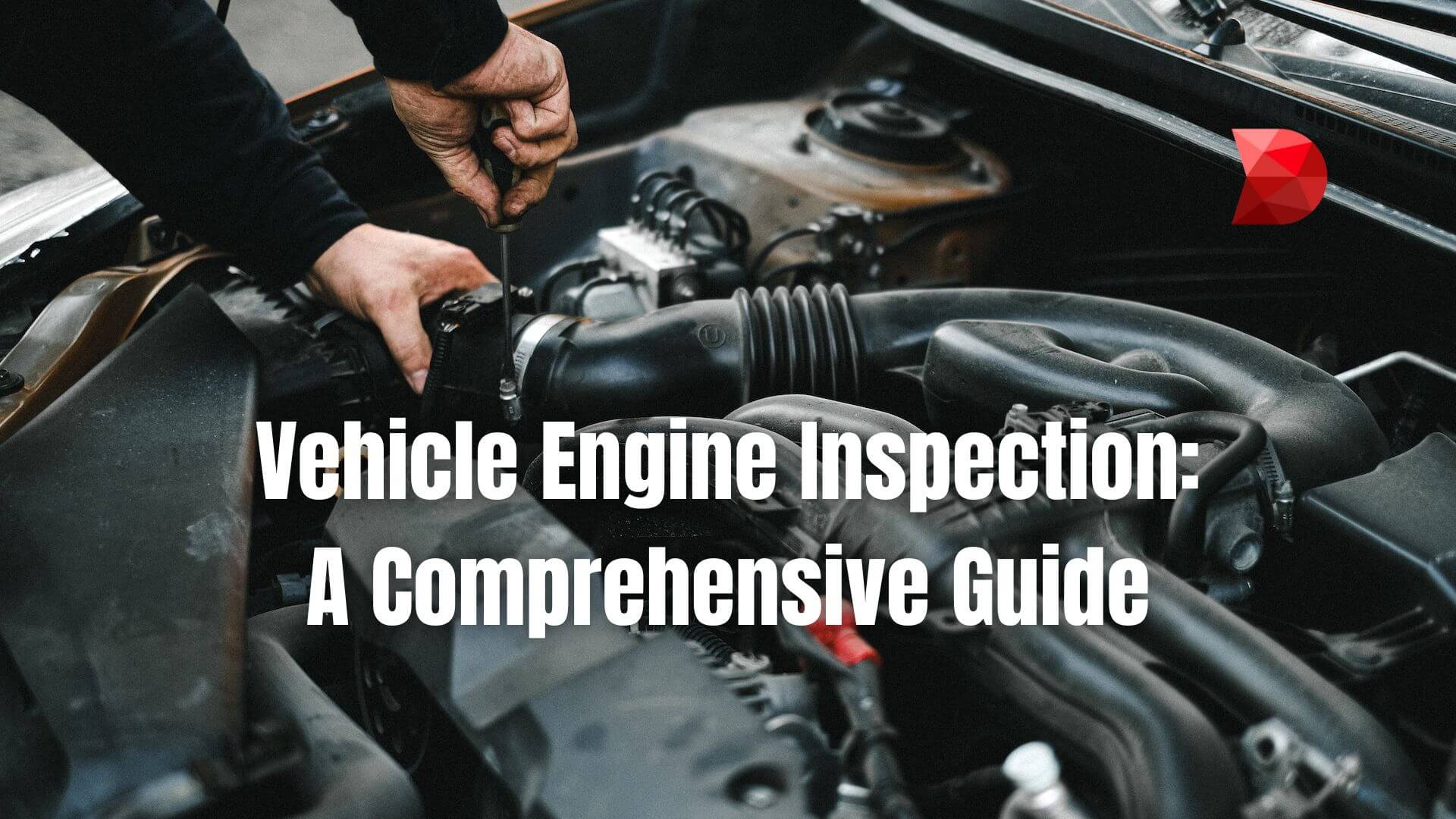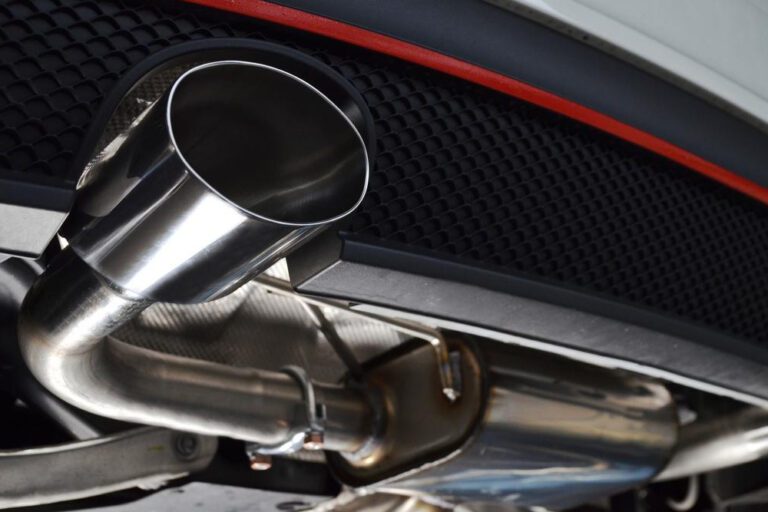Preventing Fuel System Leaks: A Comprehensive Guide
Preventing fuel system leaks is crucial for ensuring efficient and safe vehicle operation. This comprehensive guide provides the necessary steps to effectively address and prevent fuel system leaks.
Fuel system leaks can lead to a wide range of issues, including decreased fuel efficiency, potential fire hazards, and engine malfunctions. To prevent these problems, it’s important to regularly inspect the fuel system for any signs of leaks, such as fuel odors, wet spots, or fuel stains.
Additionally, ensure that all fuel system components, such as fuel hoses, fittings, and seals, are in good condition and properly installed. Regularly inspect and maintain the fuel tank, as well as the fuel pump and fuel injection system. By taking these preventive measures, you can keep your fuel system leak-free and maintain optimal vehicle performance.

Credit: www.facebook.com
Common Causes Of Fuel System Leaks
Fuel system leaks can lead to hazardous situations if not addressed promptly. It is essential to understand the common causes of fuel system leaks to prevent potential accidents and ensure vehicle safety.
Corrosion And Rust
Fuel system components are often susceptible to corrosion and rust due to exposure to moisture and chemicals. Corroded fuel lines, tanks, or connections can lead to leaks, posing serious safety hazards. Regular inspection and timely replacement of corroded parts are crucial in preventing fuel system leaks.
Faulty Seals And Gaskets
Faulty seals and gaskets are common culprits of fuel system leaks. Over time, these components can degrade, become brittle, or lose their sealing capabilities, resulting in fuel leakage. Proper maintenance, including regular inspection and replacement of worn-out seals and gaskets, is essential to mitigate this issue.
Impact Damage
Impact damage from accidents, road debris, or improper handling can compromise the integrity of fuel system components, leading to potential leaks. It is crucial to assess the condition of the fuel system after any impact and promptly address any damage to prevent fuel leaks.

Credit: datamyte.com
Signs Of A Fuel System Leak
Identifying a fuel system leak in your vehicle is crucial to prevent safety hazards and maintain optimal performance. By recognizing the signs early on, you can take immediate action and avoid potential damage. This section will explore the most common indicators of a fuel system leak, including a strong gasoline smell, visible fuel leaks under the vehicle, and decreased fuel efficiency.
Gasoline Smell
A noticeable gasoline smell could indicate a fuel system leak in your vehicle. If you detect a pungent odor of gasoline inside or outside the car, it is essential to investigate further. This smell is a red flag that fuel is leaking and could potentially lead to a fire or other hazardous situations.
Visible Fuel Leaks Under The Vehicle
Another clear sign of a fuel system leak is the presence of visible fuel leaks under your vehicle. If you notice any wet spots, drips, or puddles of fuel on the ground where your car is parked, it is a strong indication of a leak. These leaks can originate from various components of the fuel system, such as the fuel tank, fuel lines, or fuel injectors.
Decreased Fuel Efficiency
If you notice a sudden decrease in your vehicle’s fuel efficiency, it could be a result of a fuel system leak. Leaks can disrupt the proper fuel delivery to your engine, causing it to work harder and less efficiently. As a result, you may experience a significant drop in miles per gallon (MPG) and find yourself refueling more frequently than usual.
Steps To Prevent Fuel System Leaks
Preventing fuel system leaks is crucial for the safety and proper functioning of your vehicle. Regular inspection and maintenance, using high-quality fuel and parts, and proper installation and tightening are essential steps to ensure the integrity of your fuel system. By following these steps, you can minimize the risk of leaks and maintain the efficiency and longevity of your vehicle.
Regular Inspection And Maintenance
Maintaining the fuel system of your vehicle requires regular inspection and maintenance. By adopting a proactive approach, you can identify potential issues before they escalate into major leaks. Here are some key aspects to consider:
- Inspect fuel lines for any signs of wear, cracks, or corrosion, paying extra attention to areas exposed to heat and moisture.
- Check for leaks around fuel injectors, fuel pump, and fuel tank connections.
- Inspect the fuel tank for any signs of damage or corrosion.
- Ensure the fuel cap is tightly sealed to prevent evaporation and leakage.
- Regularly replace the fuel filter as per the manufacturer’s recommendations.
- Consider using a fuel system cleaner as part of your regular maintenance routine to remove any deposits that could lead to leaks.
Using High-quality Fuel And Parts
The quality of fuel you use can significantly impact the performance and longevity of your fuel system. Here are some important considerations:
- Always choose high-quality fuel from reputable gas stations to minimize the risk of contamination and impurities that can cause leaks.
- Use the recommended fuel octane rating for your vehicle, as using the wrong fuel can lead to combustion problems, potentially causing leaks.
- Ensure that any replacement parts you use for your fuel system, such as fuel lines or fuel injectors, are of high quality and approved by the manufacturer.
Proper Installation And Tightening
When it comes to preventing fuel system leaks, proper installation and tightening of components play a crucial role. Here are some important guidelines to follow:
- When installing new fuel system components, carefully follow the manufacturer’s instructions and specifications.
- Ensure all connections, such as fuel line connections, fuel injector connections, and fuel tank connections, are properly tightened to prevent leaks.
- Use the appropriate torque specifications to avoid over-tightening or under-tightening, as both can lead to leaks.
- If you are not confident in your ability to install or tighten fuel system components correctly, it is recommended to seek professional assistance.
Dealing With Fuel System Leaks
Dealing with fuel system leaks requires immediate action, professional assistance, and strict adherence to safety precautions. Addressing fuel system leaks promptly is crucial to prevent dangerous situations and costly repairs. Here are essential steps to take when dealing with fuel system leaks:
Immediate Action Steps
Upon discovering a fuel system leak, it is imperative to immediately take the following steps to mitigate potential hazards:
- Turn Off Ignition: If a fuel leak is suspected, turn off the engine immediately to prevent any sources of ignition.
- Evaluate the Leak: Assess the extent and location of the leak to plan the next course of action.
- Contain the Spill: Use absorbent materials to contain and clean up any fuel spillage to prevent environmental contamination.
- Keep Ignition Sources Away: Maintain a safe distance from potential ignition sources such as open flames, cigarettes, or electrical equipment.
- Implement Ventilation: If the leaked fuel has created a strong odor, ventilate the area to decrease the risk of fire or inhalation hazards.
Seeking Professional Help
While immediate action steps are essential, it is equally important to seek professional help when dealing with fuel system leaks. Contact a qualified technician or mechanic to assess and repair the fuel leak to ensure the long-term safety and integrity of your vehicle. Professional assistance can help identify underlying issues and provide comprehensive solutions to prevent future leaks.
Safety Precautions
When addressing fuel system leaks, it is critical to follow strict safety precautions to avoid accidents and injuries. Here are some essential safety measures to observe:
- Wear Protective Gear: Use gloves, safety goggles, and protective clothing to shield yourself from potential contact with fuel.
- Avoid Smoking: Refrain from smoking or using open flames in the vicinity of the fuel leak area.
- Proper Ventilation: Ensure adequate ventilation in the area to prevent the buildup of fuel vapors.
- Dispose of Materials Safely: Dispose of any contaminated materials according to local regulations to prevent environmental harm.
Final Thoughts On Fuel System Leak Prevention
Discover essential techniques to prevent fuel system leaks effortlessly. Implementing proactive maintenance can significantly reduce the risks associated with fuel system leakages. Consistent monitoring and timely interventions are key to ensuring optimal fuel system integrity.
Importance Of Proactive Measures
Fuel system leak prevention is crucial for maintaining vehicle safety and performance.
Key Takeaways For Vehicle Owners
Regular inspections and maintenance help identify and address potential fuel system leaks promptly.
“` Fuel system leak prevention is vital for vehicle safety and performance. Regular inspections help in early leak detection and maintenance. Prompt attention to potential leaks improves vehicle longevity and safety. Stay proactive to ensure your fuel system operates efficiently.
Credit: www.amazon.com
Frequently Asked Questions On Preventing Fuel System Leaks: A Comprehensive Guide
What Causes Fuel Pump To Leak?
The fuel pump can leak due to damaged seals, cracked housing, or corrosion. It may also result from excessive wear and tear. Regular maintenance can prevent leaks.
What Are Symptoms Of A Fuel System Issue?
Common symptoms of a fuel system issue include difficulty starting the engine, frequent stalling, poor fuel efficiency, engine misfires, and a strong smell of gasoline. Other signs may include sluggish acceleration, engine hesitation, and a decrease in overall power.
How Do You Know If Your Fuel Line Is Leaking?
To determine if your fuel line is leaking, look for signs such as the smell of gas, visible fluid underneath your vehicle, lowered fuel efficiency, and difficulty starting the engine. Inspect the fuel line for any cracks, holes, or loose fittings.
If you notice any of these indicators, it’s essential to have the fuel line inspected and repaired by a professional mechanic promptly.
Can I Drive With Air In Fuel Line?
Driving with air in the fuel line can damage your engine. It can lead to poor performance and stalling. It’s best to avoid driving and have the issue fixed by a professional mechanic promptly.
Conclusion
In a nutshell, a well-maintained fuel system is crucial for vehicle safety and performance. By regularly inspecting, maintaining, and repairing fuel system components, you can prevent leaks and extend the lifespan of your vehicle. Remember to follow the tips outlined in this guide for a trouble-free and efficient fuel system.
Your vehicle will thank you!


